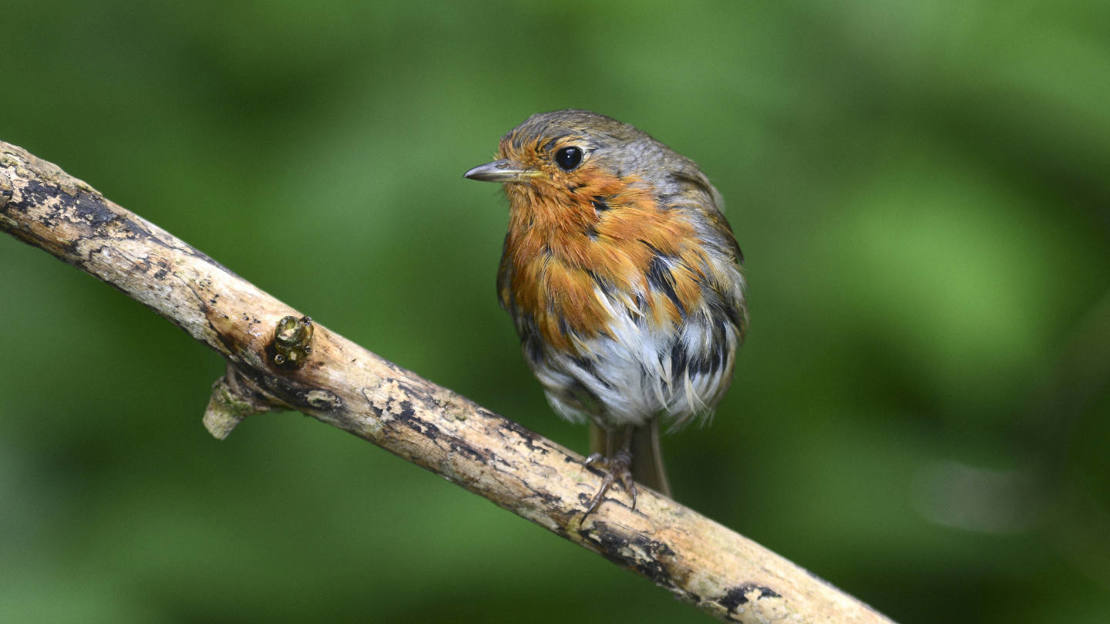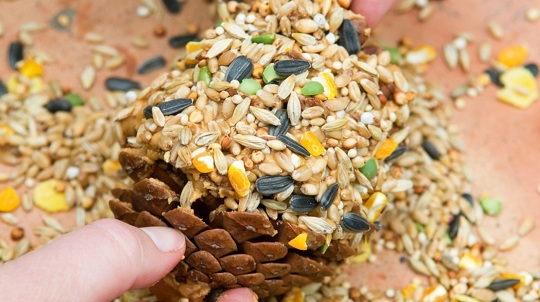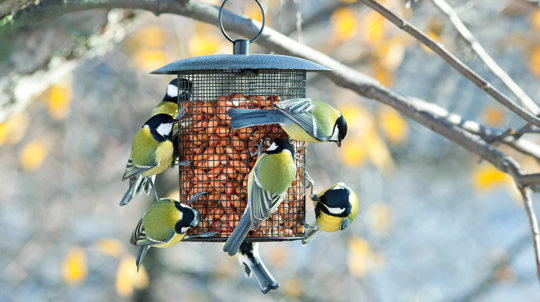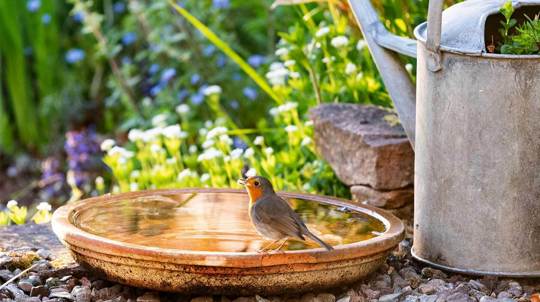Robins sing all year round to defend prime foraging territory from other robins. Because they don't stay paired up once breeding has finished, even the females sing to keep their own patch to themselves.
Where have my garden birds gone?

Content manager
From the end of summer, gardeners begin to fret. Their once bustling bird table and busy hanging feeders no longer seem to tempt in visitors, and the garden falls oddly silent. The birds, it seems, have disappeared.
But fear not. A sudden plague has not befallen your feathered friends. Your lovingly provided fat balls and carefully selected seed mix have not become permanently unpopular. There is a reason for this absence, and the birds will be back.
Why do birds stop singing?
Bird song is one of the joys of spring, not to mention a key sign that things are beginning to rev up. But it's not just noticeable when it starts. It can also leave our gardens feeling pretty empty when it stops.
Birds sing for two main reasons: to defend territory against rivals and to attract a mate (whether by showing off their own prowess or to advertise ownership of a good nesting site). It is mainly males that do the singing, although females of some species sometimes join in, and contact calls between pairs or family groups help keep bonds strong.
Once breeding finishes, most birds go their separate ways, and with the exception of species such as robin and wren, songs fall silent. Without mates to defend and with food abundant in autumn, the cost of singing (the time and energy needed to do it) often outweighs the benefits of keeping resources to yourself.

Blue tits weigh around 10 grams. A female blue tit may lay a 1 gram egg - that's a 10th of her body weight - every day for two weeks as she completes her clutch. This amazing feat takes a toll on mum's energy supply and body condition.
When do wild birds moult?
Birds have been running themselves (and their feathers) ragged as they've gone about the business of breeding, whether by singing and defending their territories, building nests, laying nutrient-rich eggs (a big investment of calories), or filling hungry mouths with a constant supply of hard-to-find food. All that hard work takes it out of you! Feathers are also damaged over time by the sun, parasites and by rubbing against surfaces (such as when squeezing in and out of nest holes).
When the main event is over, it's time to take a well-earned rest and repair all that wear and tear. Most birds replace all their feathers at least once a year. Some, such as geese and swans, lose the ability to fly while their flight feathers fall out and regrow. Small birds however tend to take a more gradual approach (although it's not uncommon for it to go a bit wrong, resulting in bald-headed birds at times).
When wing feathers are being moulted, flight (and the ability to make a quick get away from danger) could be affected, even if all the feathers aren't lost at once. It's thought that birds become more secretive at this time to make themselves less conspicuous to predators. They'll be back once they're fighting fit again.
Why are birds not using my feeders?
In spring when the breeding season is in full swing, feeders can offer a valuable emergency larder for parents busily feeding a brood of hungry chicks.
Most garden birds need insects and other protein-rich invertebrates to feed to their young, ensuring they get the nutrients they need while they grow. Spring, with its explosion of caterpillars and winged critters, is the perfect time to do this (which is of course why birds time their nesting for this time of year). If insects become scarce however, or parents themselves need a quick energy boost, feeders can offer an important top up. They're also good for young fledglings that are still learning the ropes.
Once the kids have flown the nest however, you might notice feeders falling out of favour. An abundance of wild foods such as seeds and fruits in hedgerows, woods and the wider countryside, plus the availability of spilled grains and other crops during harvest, mean that birds don't need to rely on hand outs from friendly gardeners.
Once these stocks run low in winter and poor weather prevents birds from foraging effectively, birds tend to return to gardens in search of a reliable meal.
Get your garden ready to welcome the birds back this winter
Attract birds to your garden
Buy feeders, nest boxes and more from our online shop.
Visit the shop now



